Egypt
Egypt has eased the conditions for granting its nationality to foreigners who invest in dollars in the country plagued by inflation and a lack of foreign currency, local media reported Wednesday.
A law passed by parliament in 2018 and amended by the prime minister in 2019 had paved the way for Egyptian nationality to be obtained through investment, such as when depositing in an Egyptian bank or buying real estate in dollars.
According to the new amendments reported Wednesday by the Egyptian media, foreigners can be granted an Egyptian passport if they buy a real estate property belonging to the State or a public company worth at least 300,000 dollars, against 500,000 dollars previously, or if they make a deposit in an Egyptian bank account of 500,000 dollars against the 750,000 required until now.
This decision by Prime Minister Mostafa al-Madbouly is the latest in a series of measures aimed at bolstering the state's coffers by attracting foreign investment, as the country is being squeezed by its creditors while inflation continues to impoverish its 105 million inhabitants.
Egypt is going through one of the worst economic crises in its history. In one year, the Egyptian pound has lost half its value against the dollar, while the country's foreign exchange reserves have melted away.
The war in Ukraine caused wheat prices to soar, which had a significant impact on Egypt, one of the world's largest grain importers, and put pressure on its foreign exchange reserves.
Inflation, meanwhile, officially reached 26.5% in January -- nearly four times higher in reality, according to hyperinflation experts -- and the country is now among the most at risk in the world of defaulting on its debt.
Dollar reserves have shrunk by 20% to $34.2 billion, of which $28 billion came from the Gulf.
Egypt obtained a new loan from the IMF in December, but the three billion dollars that will be paid out over about four years weighs little: the debt service alone for 2022-2023 amounts to 42 billion dollars.
In return, the government has been implementing an economic reform program since 2016 that includes phasing out subsidies on petroleum products. In early March fuel prices rose at rates as high as 20%.



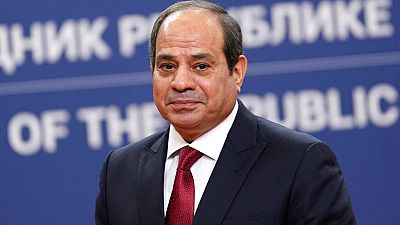

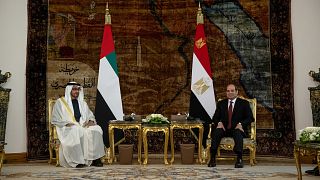
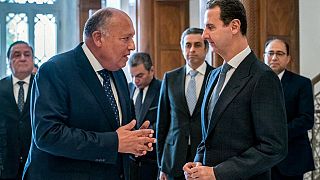
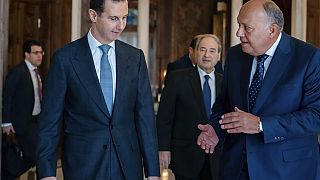
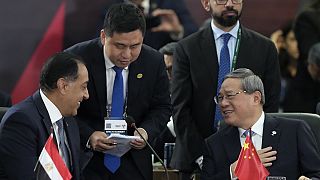





Go to video
Former Nigerian President to be buried today
Go to video
Islamic preachers in Burkina Faso rally against social media hate
Go to video
Ruto's $9M mega church sparks outrage amid Kenya's crisis
Go to video
“I can’t do nuttin’ for ya man”, Nigerian Minister quotes Flavour Flav in rejection of Trump policy
01:53
SMES under pressure as business confidence hits four-year low in South Africa
Go to video
U.S. slashes visa duration for some African nationals amid policy shift